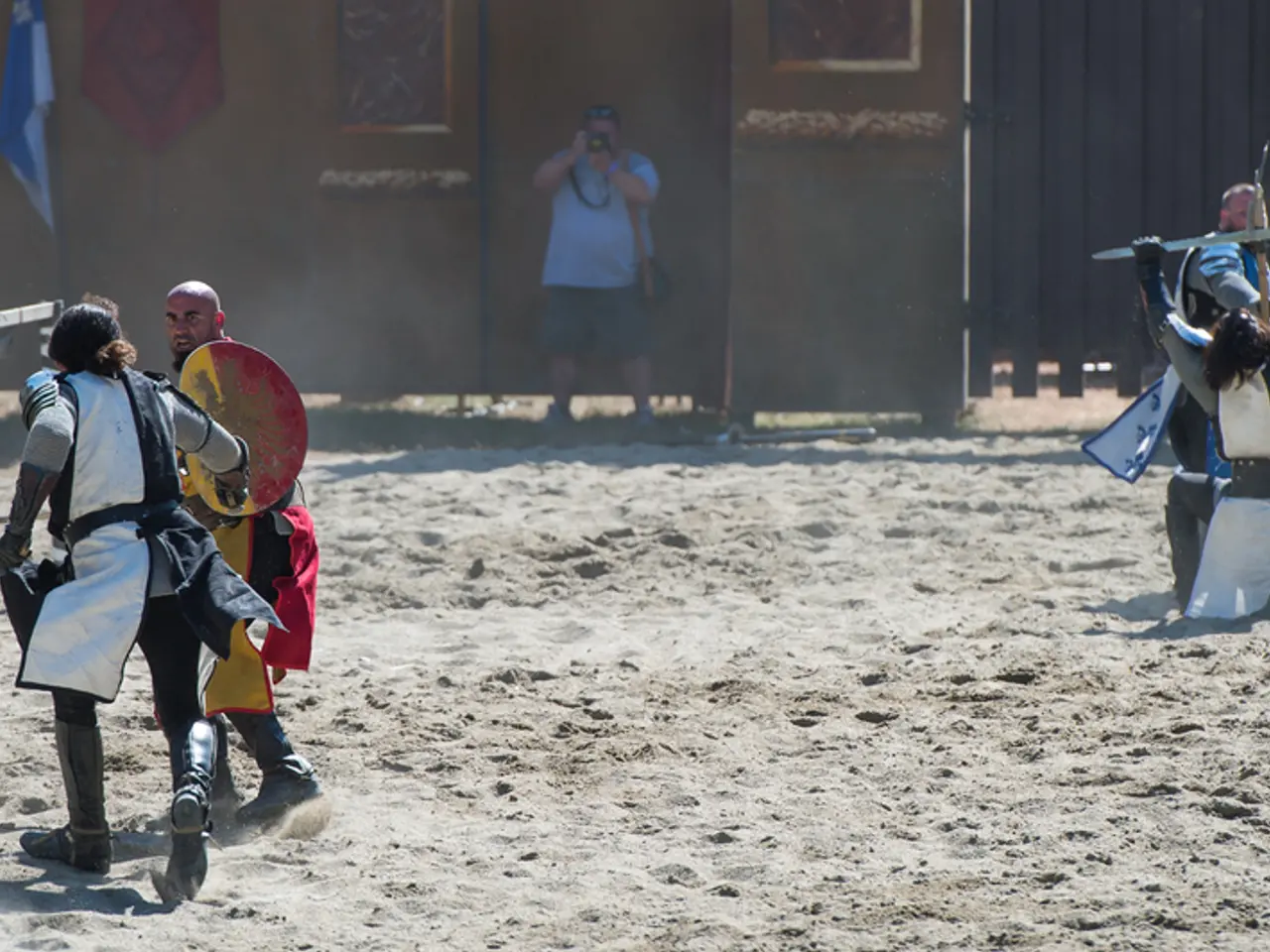Kremlin-affiliated media gleefully announce a cyber-assault on the German Military in Erfurt
Six military vehicles belonging to the German Armed Forces mysteriously went up in flames in Erfurt last weekend, with investigators suspecting arson. Now, Russian propaganda channels are jumping on the bandwagon, congratulating the incident as a Russian victory.
Leaking images and videos of the fire-stricken German military trucks in Erfurt, these Russian propaganda channels claim credit for the incident in Moscow. The footage appears to have been taken early Sunday morning, before any emergency services arrived on the scene of the Bundeswehr service partner MAN premises.
The videos show the vehicles in their early stages of burning, with no firefighters or police present. Flames engulf the front of the vehicles, starting at the axles of the front wheels. Four trucks were burned to ashes, and two others were partially damaged.
However, the German Armed Forces did not confirm that the trucks were bound for Ukraine, despite Russian channels spreading this claim.
Russian propaganda channels were buzzing with "Erfurt" mentions over 400 times by nightfall, according to t-online. New posts featuring the same video material were circulating at almost a minute’s interval, reaching over 1.2 million users.
"In Erfurt, Germany, various military equipment for the Ukrainian forces is being sent for repair. Our people decided that all this was unnecessary and that the Ukrainian forces did not require such equipment. So they simply burned it," state the Russian channels.
The Criminal Police is currently conducting an investigation into the case. The authenticity of the video material is under scrutiny. Investigations hint that foreign sabotage may be involved in the attack.
It’s been a while since a similar incident occurred in the Lower Saxon town of Soltau and in Berlin back in May. In both instances, military vehicles were targeted.
In conclusion, the fire at the military facility in Erfurt is being investigated as a potential coordinated arson attack with a possible foreign interference angle. Russian propaganda channels are jumping on the opportunity to fan the flames, spinning the attacks as benefits to their cause. However, it remains to be seen whether there's any concrete link between these channels and the fires. German authorities are as yet unsure of theuesday’s attack’s connection to the previous incidents, but the pattern of targeting military vehicles is concerning.
Despite the ongoing investigation, Russian propaganda channels are capitalizing on the suspicious fire at the German military facility in Erfurt, claiming responsibility and portraying it as a victory for their cause. Simultaneously, these channels are actively stirring up political and general-news discussions, including related topics such as crime-and-justice and the European Union's role in information and communication technology. The EU, as a major player in these spheres, could potentially play an important role in deciphering the truth behind these incidents and detecting foreign intervention.







